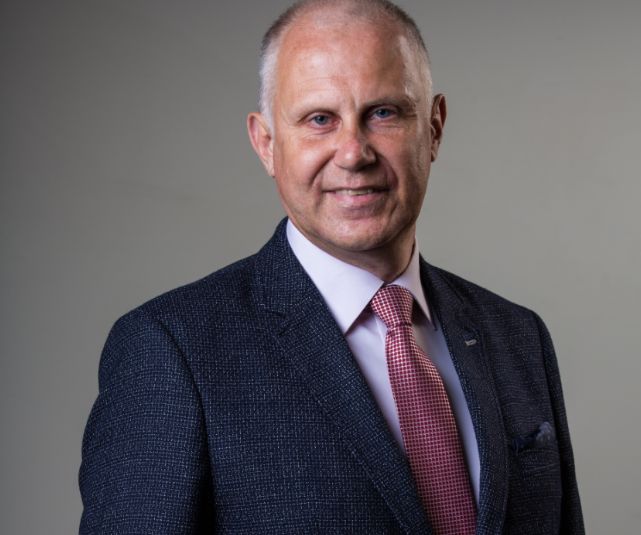Toughness must become the cornerstone of European civilization

France was shaken by an extremely inhumane crime last weekend. Abdullah Anzorov, an 18-year-old refugee from Russia, killed and beheaded his school teacher Samuel Paty. The motives for this extremely heinous crime are, in any case, unacceptable and unjustifiable.
However, as the element of multiculturalism in this crime cannot be ignored, a number of side issues arise. Firstly, on the limits of integration. How big can a mass of immigrants be to be absorbed by local culture without significant threat to their own identity? Secondly, the assessment of so-called tolerance and inclusiveness. So far, tolerance and inclusiveness have been accepted as something indisputably positive. To question this truth is to place yourself under the hammer of society's condemnation. However, let's try. Based on the experience of the Latvian people.
Until 1940, Latvia was a normal European country in all respects. It was occupied by the USSR in 1940 (the official name of Russia from 1922 to 1991). Immediately after the beginning of the occupation and especially actively after the end of World War II, the russification of Latvia began. Hundreds of thousands of Russian-speaking people were moved to Latvia from other parts of the USSR. Latvia was not the only one against which such a policy was directed. A similar situation arose in Estonia, Lithuania, Western Ukraine and Moldova, which was separated from Romania.
In 1991, all these lands regained their independence. But the consequences after half a century of colonization were not the same everywhere. Lithuania and Western Ukraine maintained high ethnic homogeneity, Estonia remained somewhere in the middle, Moldova and especially Latvia regained their independence with a heavy legacy - a large part of the population that did not speak the native language, was not interested in local culture and even despised it. You can try to find something positive in this situation, but if we want to speak clearly and honestly, then there is nothing positive there.
The question arises - why was russification in one place easier, but in another it went like herding cats? A number of supposedly objective factors can be mentioned, but in my opinion, the determining factor was the attitude of the society towards the culture of the newcomers. In practice, this manifested itself as a willingness to speak or not to speak the language of the newcomers, an expressive displays of one's liking or dislike. In modern terminology, society in Lithuania and Western Ukraine was intolerant and uninclusive. As a result, immigrants from other parts of the USSR did not feel at home there. They were always made to feel like foreign bodies, unwanted guests, so they did not really want to move to these places.
Latvia was different, where people were tolerant and inclusive. Most people, upon hearing - я не понимаю (I do not understand) - were immediately ready to switch to Russian, no matter how well they knew it. Even if the majority around were Latvians. Immigrants in Latvia felt at home, and therefore they preferred to come to us. The fact that, 30 years after the restoration of independence, ethnic issues (the consequences of migration) are still a large part of our political agenda is not something to be happy about.
If anyone in Europe wanted to listen to our experience and learn from it (which is very doubtful), then we could tell Europeans that overly tolerant and inclusive policies do no good. Only with toughness and disobedience to the dictates of immigrants can the cultural identity of Europe, which allowed Europe to become the flagship of civilization, be preserved. Inclusiveness, willingness to welcome strangers, helping to become one of the locals and similar activities look convincing in theory. In practice, unfortunately, the results are different. At one point, the arrivals begin to insist that the locals begin to take their requirements into account, and, lo and behold, pork is already disappearing from school kitchens. Just in the beginning, because it doesn't end there. It’s just starting.
It was not because of the caricatures of the Prophet Muhammad that an adolescent integrated into the local culture killed a respected teacher. His blood was shed to make it clear to French and Western society that we (those with other values) cannot and will not be ignored. You can try to include us as much as you want, but we will force you to accept and tolerate our values, not the other way around.
It is not for nothing that I did not mention Anzorov's ethnic origin at the beginning of the article. In 2011 he came to France with his family as a refugee from Moscow (where he was born). Was there a war in Moscow in 2011 that "refugees" had to be evacuated from there? The war was long over in Chechnya. But due to misunderstood tolerance and inclusiveness, the Anzorov family was granted asylum seeker status. Samuel Paty had to pay for this mistake with his life.
To be honest, France is fighting very vigorously against various troublemakers - jihadists, but you can't unring a bell. The idea of preserving one's own values and at the same time admitting a large number of people with other values in the hope that, thanks to the principles of inclusiveness, the latter will be successfully integrated has proved to be wrong. Admittedly, the perception of the fallacy of this belief comes extremely reluctantly. It is still believed that it is only a matter of time and patience, because these people (immigrants) will understand the advantages of progress over darkness and will become defenders of the right values. Maybe. We can only hope that this will indeed happen, but in the meantime, a policy of maximum toughness and not letting in aggressive cultures must be maintained as a cornerstone of European civilization.